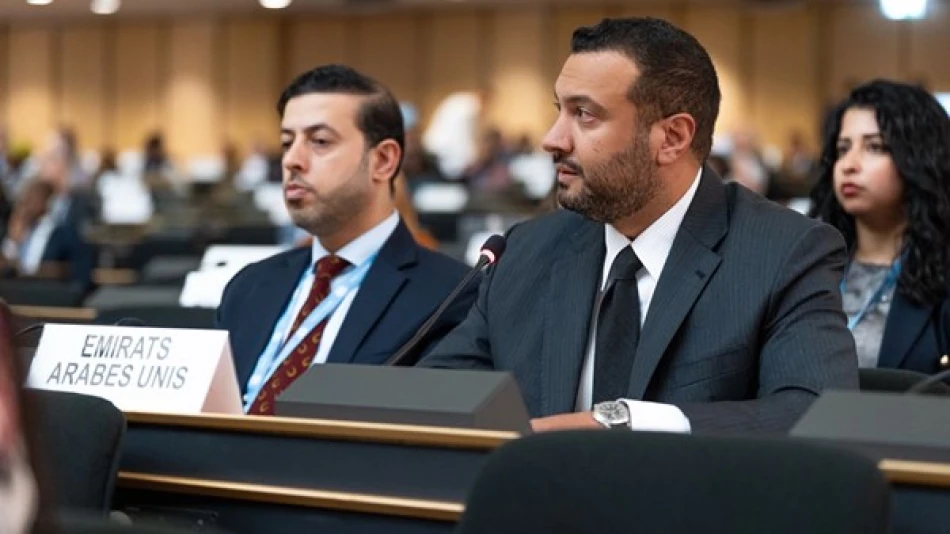
UAE Reaffirms Unwavering Solidarity with Qatar, Condemns Israeli Aggression at UN Human Rights Council
UAE Condemns Israeli Attack on Qatar as Violation of Gulf Security Architecture
The United Arab Emirates has issued a strong condemnation of what it describes as an Israeli attack on Qatar, calling it a "blatant violation" of Arab sovereignty and a dangerous escalation that threatens regional stability. The statement, delivered at a UN Human Rights Council emergency session, underscores growing Gulf unity amid rising regional tensions and marks a significant diplomatic moment for the traditionally cautious UAE.
Diplomatic Response Signals Gulf Solidarity
Speaking at the UN Human Rights Council in Geneva, UAE Permanent Representative Jamal Juma Al-Musharakh delivered an unequivocally supportive statement for Qatar, describing the alleged Israeli action as a "flagrant and cowardly attack" that violates international law and UN Charter principles. The UAE extended condolences for the death of a Qatari Internal Security Force member during the incident.
The emergency session was convened at the request of both the Organization of Islamic Cooperation and the Gulf Cooperation Council, demonstrating coordinated regional diplomatic pressure. This unified response represents a notable evolution in Gulf politics, particularly given the UAE and Qatar's complex relationship history.
Regional Security Architecture Under Pressure
Collective Defense Doctrine Invoked
The UAE's statement went beyond standard diplomatic condemnation by explicitly linking Qatar's security to broader Gulf stability. Al-Musharakh emphasized that "the security and stability of sisterly Qatar is an integral part of the security and stability of the GCC states," effectively invoking a collective defense principle that any attack on one Gulf state constitutes an attack on the shared Gulf security system.
This framing is strategically significant, as it positions the incident within the broader context of Gulf Cooperation Council mutual defense arrangements, potentially obligating other member states to respond collectively to future incidents.
Escalation Concerns Drive Diplomatic Action
The UAE's warning that the region "cannot tolerate further escalation and instability" reflects genuine concerns about spillover effects from ongoing regional conflicts. With multiple flashpoints across the Middle East—from Gaza to Lebanon to Yemen—Gulf states are increasingly worried about being drawn into wider confrontations that could disrupt their economic diversification strategies and development projects.
Strategic Implications for Gulf Politics
The UAE's robust defense of Qatar represents a pragmatic recalibration of Gulf relationships. Despite past diplomatic disputes, including the 2017-2021 Qatar blockade that the UAE participated in alongside Saudi Arabia and Bahrain, current geopolitical realities are forcing closer cooperation among Gulf monarchies.
For international observers and regional analysts, this unified stance suggests that Gulf states are prioritizing collective security over bilateral grievances when faced with external threats. The coordinated response also demonstrates the effectiveness of recent reconciliation efforts within the GCC framework.
The incident and subsequent diplomatic response underscore the delicate balance Gulf states must maintain between their security partnerships with various international actors and their commitment to regional stability. As tensions continue to simmer across the Middle East, the UAE's statement signals that Gulf solidarity may be emerging as a defining feature of regional diplomacy in an increasingly complex security environment.
Most Viewed News

 Layla Al Mansoori
Layla Al Mansoori






